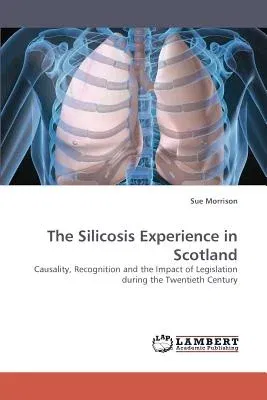Sue Morrison
(Author)The Silicosis Experience in ScotlandPaperback, 22 January 2010

Qty
1
Turbo
Ships in 2 - 3 days
In Stock
Free Delivery
Cash on Delivery
15 Days
Free Returns
Secure Checkout
Print Length
356 pages
Language
English
Publisher
LAP Lambert Academic Publishing
Date Published
22 Jan 2010
ISBN-10
3838335635
ISBN-13
9783838335636
Description
Product Details
Author:
Book Format:
Paperback
Country of Origin:
US
Date Published:
22 January 2010
Dimensions:
22.86 x
15.24 x
2.01 cm
ISBN-10:
3838335635
ISBN-13:
9783838335636
Language:
English
Location:
Saarbrucken
Pages:
356
Publisher:
Weight:
521.63 gm

